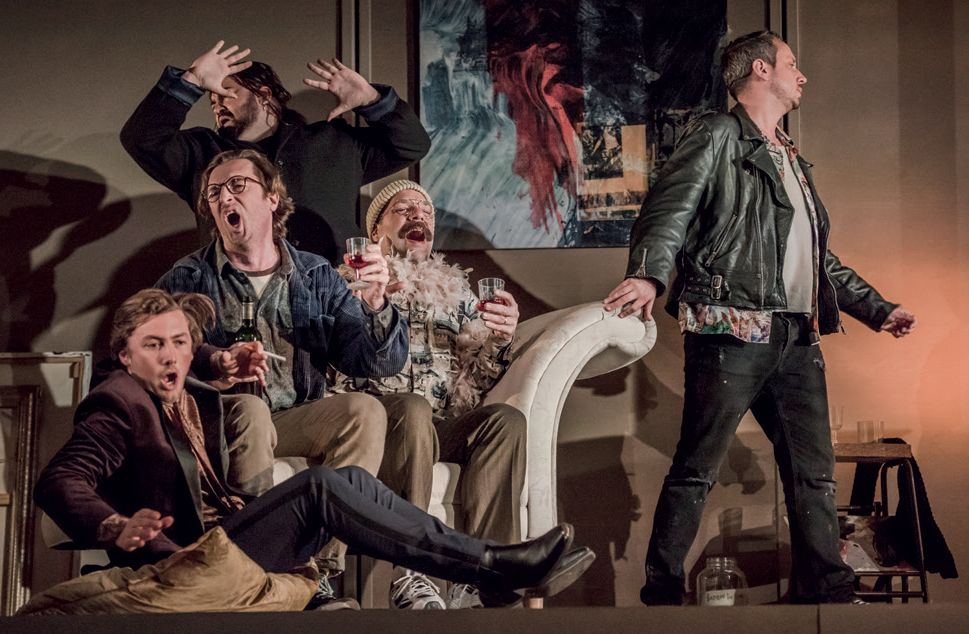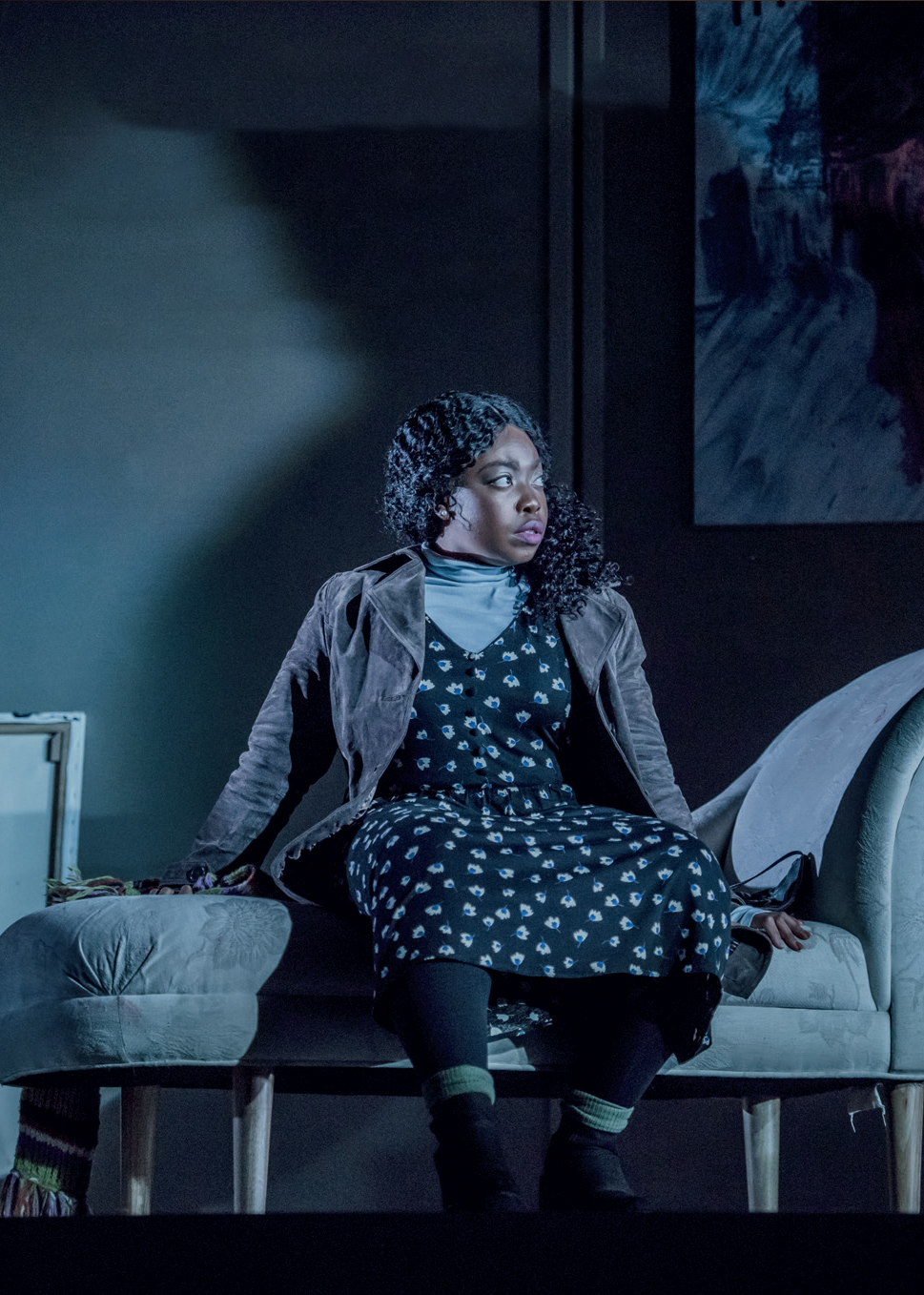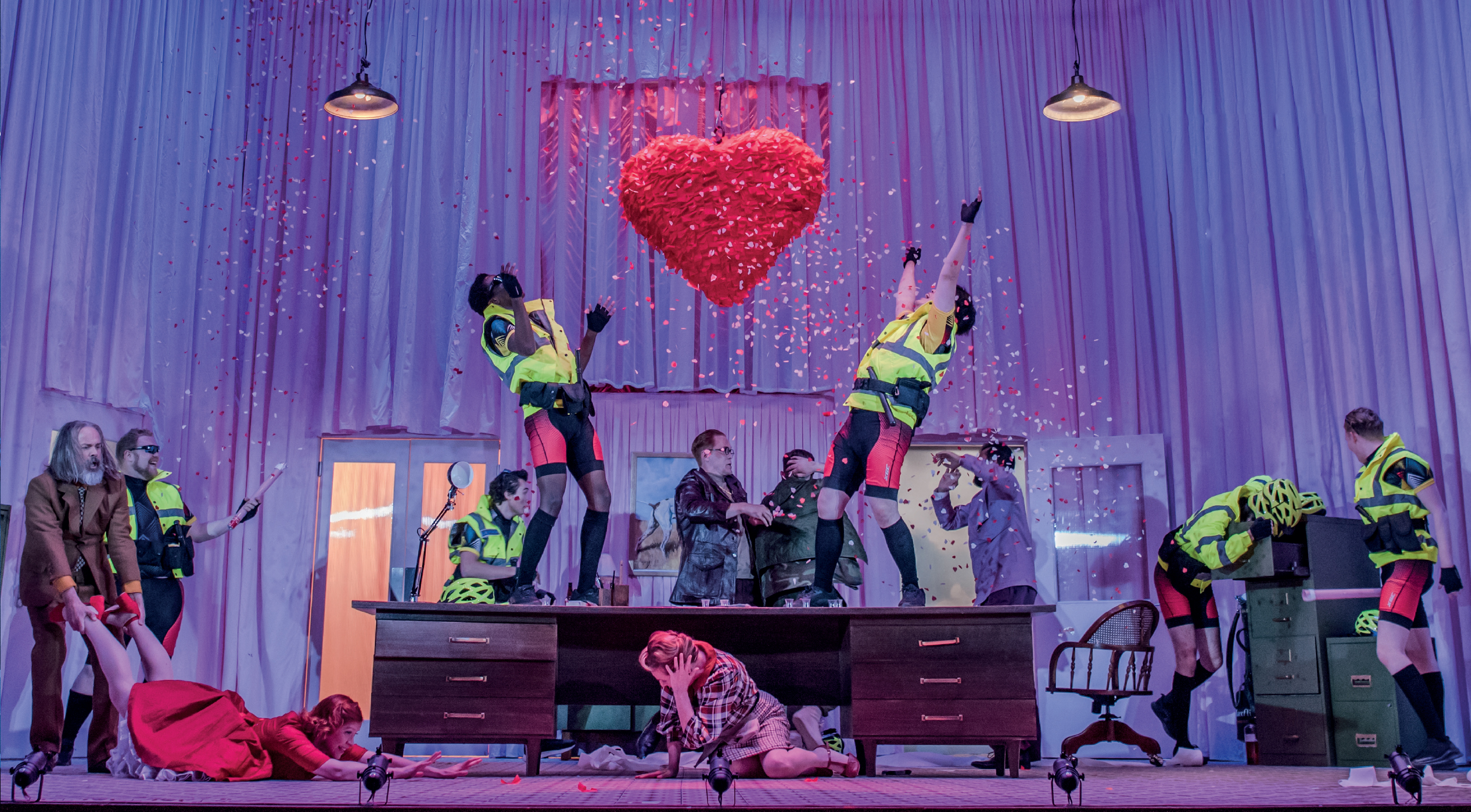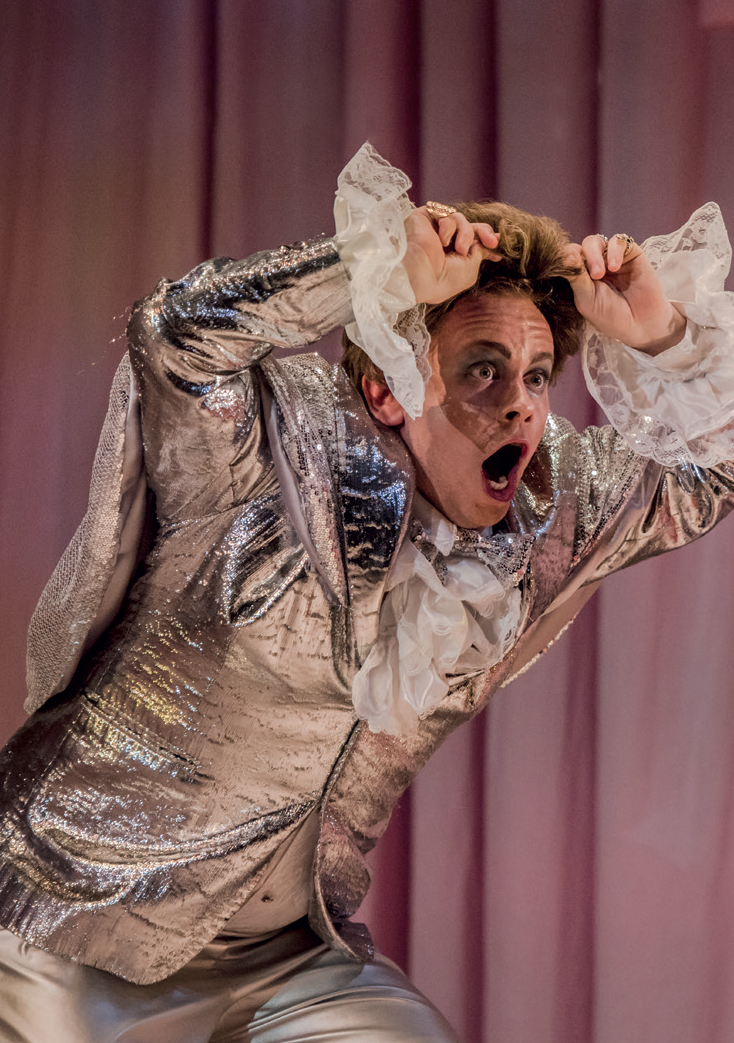Nevill Holt: La bohème and The Barber of Seville | Live Review
George Hall
Friday, September 2, 2022
Liam Bonthrone had all the high notes for Count Almaviva while his ability to negotiate Rossini's florid writing was impressive. Photography by Genevieve Girling

La bohème
Two standard rep pieces at this year's Leicestershire festival, the first offering a new take on Puccini's classic.
In a programme note to Puccini's La bohème, director Mathilda du Tillieul McNicol and her assistant Evangeline Cullingworth posit the notion that Mimì ‘could have been a proficient and talented poet, writer or philosopher, confidently leading a life full of potential and proven success’. Faced with the knowledge of her illness, they go on, ‘what if she makes the choice to enter Bohemia for the last four acts of her life?’ Speculative this reading must inevitably remain, however - because there's no evidence in the opera's text to support it.
With her striking vocal quality and personality, Francesca Chiejina's Mimì was thus placed at the centre of the action. She opened the show, remaining alone on stage for some moments before the action began, clearly already ill with the mortal disease that takes her life at the end of the opera's inescapable emotional trajectory.
Yet the fact is that beyond some initial identifiers and minor gestures that are scarcely followed up, Puccini and his librettists seem uninterested in any of the opera's characters as artists, concentrating instead on dysfunctional couple relationships.
Bohème is an ensemble piece that works when a cast presents a credibly intense pairing of such ill-matched relationships. It did so here: the intermeshing of the six central youthful roles involving, even if the hand-to-mouth existence eked out by the four going-nowhere flat-share artists looked a good deal less poverty-stricken than usual in Basia Bińkowska's contemporary set.

Fun and games: Dominic Sedgwick (Schaunard) Dingle Yandell (Colline), Peter Scott Drackley (Rodolfo), Andrew Tipple (Benoît), Christopher Nairne (Marcello)
Elsewhere her visuals conjured up an effective Café Momus - both the adult and the children's chorus making vital contributions here - and provided convincing externals for the dubious bar on the outskirts of Paris.
The other members of the Bohemian six all had something to offer. With its blend of power and sensitivity, Peter Scott Drackley's tenor formed the basis for an intensely personal interpretation, sharply defined in ‘Che gelida manina’. His rocksolid baritone a huge asset, equally striking was the vivid Marcello of Christopher Nairne, expertly partnered by Alexandra Oomens’ Musetta, her confident soprano perfectly suggesting the character's ‘don't-mess-with-me’ manner.
Of the remaining flatmates Dingle Yandell's Colline seized his opportunity with the Coat Song while Dominic Sedgwick supplied a witty Schaunard. The dual cameos of landlord Benoît and hapless ladies’ man Alcindoro were skilfully sketched in by Andrew Tipple.

Striking vocal quality and personality: Francesca Chiejina as Mimì
The Manchester Camerata was in the pit, combining impressive tone with total engagement and superintended by festival artistic director and conductor Nicholas Chalmers, who drew from Puccini's score all the vitality and momentum required for the piece to hold its listeners in a tight emotional grip: he is a significant asset to the festival.
MUSIC ★★★★
STAGING ★★★
The Barber of Seville
Nevill Holt's second opera was The Barber of Seville - titled in English but sung in Italian.
Anna Morrisey's production contained good elements but was overall a disappointment. It was a modern-dress staging where the class distinctions so carefully observed in the original text (both novel and containing revolutionary implications) were scarcely evident; from a purely visual point of view, for instance, Andri Björn Róbertsson's Don Basilio could have been anybody. Designer Alex Berry came up with the lightweight though again somewhat anonymous sets.
Barber, obviously, is meant to be fun, but here we were closer to farce than to what one might describe (in terms of Beaumarchais's original 1775 play) as one of the most serious comedies of the 18th century, something that continues to resound in Rossini and librettist Cesare Sterbini's 1816 operatic version; too often in this staging, it all felt like harmless fooling around. Worse, there was a tendency for the performers to allow the audience to know how funny they were being - a strategy that can undermine any comedy.

Harmless fooling around: a scene from The Barber of Seville
Much of the singing, though, registered positively. Tenor Liam Bonthrone had all the high notes for Count Almaviva while his ability to negotiate Rossini's florid writing was impressive. Michel de Souza, on the other hand, tended to slide around the coloratura; but his healthy baritone and ability to connect with the audience brought his Figaro to the fore - though the posse of barber's shop assistants and customers let loose to upstage his ‘Largo al factotum’ was distinctly unhelpful and sadly a portent of things to come.
Sarah Champion's Rosina was a mixed quantity. The notes were all there and a positive personality on display - one feels that this particular ward is not destined to be bested by Bartolo - but there were equally moments where notes were not precisely in tune and the tone uningratiating.

Liam Bonthrone - effortlessly florid singing as Count Almaviva in The Barber of Seville
Grant Doyle's solidly crafted Bartolo was in the traditional mould. Though it's a secondary role, Janis Kelly sought out all the possibilities of Berta, never once stepping out of character to suggest how funny she was being.
The chorus worked hard, and the vital playing of the Royal Northern Sinfonia was a plus under conductor Dinis Sousa, who injected enough rhythmic vitality to match the brilliance of Rossini's writing.
MUSIC ★★★
STAGING ★★






